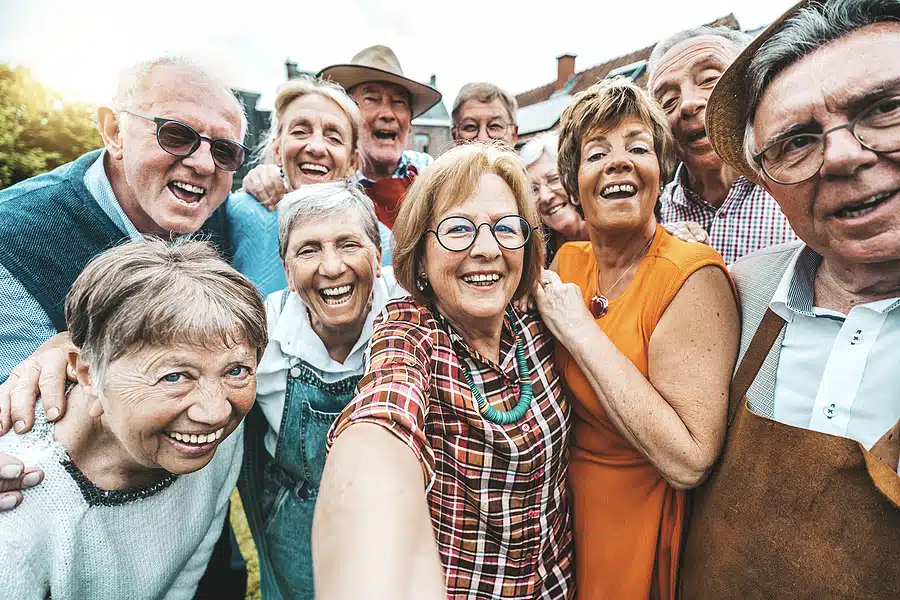The Power Of Social Connections In Our 50s

Human beings are inherently social creatures. We thrive in groups and derive our identities from these social connections.
This propensity for social engagement is not limited to any specific age group.
However, as we transition into our fifties and beyond, the importance of social connection becomes even more pronounced.
For individuals over 50, maintaining active social relationships can significantly improve mental and physical health, enhance quality of life, and even increase longevity.
Understanding Social Connections
Social connections refer to the relationships we foster with other individuals.
These connections can be with family, friends, colleagues, or community members.
They provide us with a sense of belonging, care, and support.
Furthermore, they also play an instrumental role in shaping our everyday life and well-being as we age.
Social Connections and their Scope
Social connections can encompass various types of relationships, ranging from close familial bonds and friendships to professional networks and community affiliations.
These connections are not confined to physical interactions but can also extend to virtual platforms, especially in our increasingly digital world.
The Impact of Social Connections on Health
Our social relationships significantly influence our overall health and well-being.
They serve as a protective shield against various health complications and contribute to a longer, healthier life.
Mental Health Benefits
Active social engagement promotes mental well-being by fostering feelings of belonging, purpose, and self-worth.
It can enhance happiness, reduce stress levels, and build confidence.
Moreover, social connections can act as a buffer against mental health disorders like anxiety and depression, especially for individuals over 50.
Physical Health Advantages
Apart from mental well-being, social connections also contribute to physical health in middle age.
Socially active individuals over 50 are less likely to experience heart disease, stroke, and obesity.
Furthermore, social engagement encourages healthier lifestyle choices, such as regular exercise and balanced dietary habits.
Which can have a significant impact on physical health.
Social Connections and Longevity
Several studies have underscored the link between strong social connections and increased life expectancy.
Socially active individuals have a 50% increased likelihood of survival compared to those with fewer social interactions.
This correlation holds true across various factors, including age, gender, initial health status, and cause of death.
The Risk of Social Isolation and Loneliness
While social connections can have a positive impact on health and longevity, the lack of them can lead to social isolation and loneliness.
These conditions can have severe consequences, especially for individuals over 50.
The Consequences of Social Isolation
Social isolation refers to a state of having few social relationships and limited social contact.
For individuals over 50, social isolation can increase the risk of various health complications, such as Alzheimer’s disease, heart disease, and stroke.
It can also make it harder to maintain healthy habits and increase susceptibility to harmful habits like excessive alcohol consumption or smoking.
The Effects of Loneliness
Loneliness, on the other hand, is the subjective feeling of a lack of connection to others and a desire for more fulfilling relationships.
Chronic loneliness can have a detrimental impact on both mental and physical health.
It can increase the risk of anxiety, depression, and cognitive decline. Furthermore, it can also be a predictor of suicidal ideation and behaviour.
Promoting Social Connections
Promoting social connections among individuals over 50 is crucial in mitigating the risks of social isolation and loneliness.
There are several ways to foster social engagement in this age group.
Community Engagement
Participation in community activities can provide opportunities for social interactions.
This can be through volunteering, joining local clubs, or participating in group activities.
Such engagements not only provide a platform for social interactions but also contribute to a sense of purpose and belonging.
Digital Connectivity
In our increasingly digital world, technology plays a pivotal role in promoting social connections.
Digital platforms can facilitate online interactions with friends, family, and peers.
Furthermore, they can also help individuals over 50 engage in virtual group activities, fostering a sense of community and belonging.
The Way Forward
The importance of social connections for individuals over 50 cannot be overstated.
These connections can significantly enhance mental and physical health, improve the quality of life, and increase longevity.
Hence, promoting social connections should be a priority in our efforts to ensure healthy ageing.
Through community engagement and digital connectivity, we can foster a sense of belonging and support among individuals over 50, helping them thrive in their golden years.





